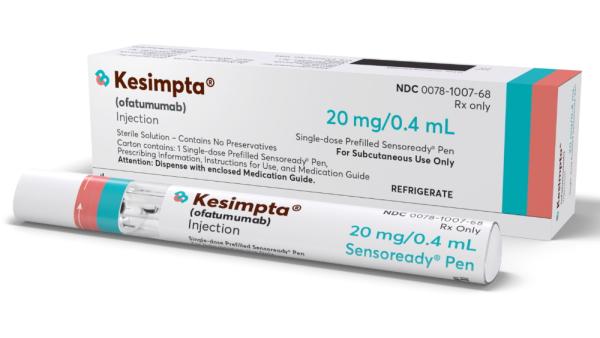Ofatumumab Disease Interactions
There are 5 disease interactions with ofatumumab.
Anti-CD20 antibodies – hepatitis B
Major Potential Hazard, Moderate plausibility. Applicable conditions: Infectious Hepatitis
The use of anti-CD20 antibodies has caused reactivation of hepatitis B virus, in some cases with fatal outcomes. It is recommended to screen all patients for hepatitis B virus infection before initiating treatment. Monitor patients during, and after several months for hepatitis B virus infection according to clinical practice. Discontinue these agents immediately and institute appropriate treatment if patients develop reactivation of hepatitis B virus while on therapy.
Anti-CD20 antibodies – infections
Major Potential Hazard, Moderate plausibility. Applicable conditions: Infection - Bacterial/Fungal/Protozoal/Viral
Serious infections, including reactivation of viral infections, have been reported with the use of anti-CD20 antibodies. JC virus infections resulting in progressive multifocal leukoencephalopathy (PML) have been reported in patients treated with these agents. A diagnosis of PML should be considered in any patient presenting with new-onset neurological manifestations, and a consultation with a neurologist is recommended. Care should be exercised when giving these drugs to patients with a history of recurring or chronic infections as they are at an increased risk of infections. Do not start therapy in patients with an active infection.
Monoclonal antibodies (applies to ofatumumab) tumor lysis syndrome
Major Potential Hazard, Moderate plausibility.
Tumor lysis syndrome (TLS), which may be life-threatening or fatal, has occurred in patients receiving certain monoclonal antibodies. Patients with high tumor burden and/or high circulating lymphocyte counts (greater than 25 x 10[9]/L) are at greater risk for developing TLS. Tumor lysis prophylaxis with anti-hyperuricemics and hydration prior to infusion may be recommended or should be considered. Electrolyte abnormalities should be corrected, and renal function and fluid balance should be monitored in patients who develop TLS. It is recommended to monitor for signs/symptoms of TLS, and temporary interruption or discontinuation of therapy might be required.
Anti-CD20 antibodies (applies to ofatumumab) cardiopulmonary disease
Moderate Potential Hazard, Moderate plausibility. Applicable conditions: Pulmonary Impairment
Patients with a prior history of cardiac or pulmonary disease should be closely monitored during and after the infusion of anti-CD20 antibodies as they can increase the risk of presenting a severe and life-threatening infusion reaction. Therapy with these agents should be permanently discontinued in patients presenting any Grade 4 infusion reactions and for those presenting Grade 3, interrupt therapy and institute treatment according to clinical guidelines. The rate of infusion should be reduced for those patients presenting Grade 1, or 2 reactions.
Anti-CD20 antibodies (applies to ofatumumab) cytopenias
Moderate Potential Hazard, Moderate plausibility. Applicable conditions: Bone Marrow Depression/Low Blood Counts
Severe neutropenia, thrombocytopenia, and anemia have been documented with the use of anti-CD20 antibodies. Monitor complete blood counts during and after therapy according to clinical guidelines.
Switch to professional interaction data
Ofatumumab drug interactions
There are 183 drug interactions with ofatumumab.
More about ofatumumab
- ofatumumab consumer information
- Check interactions
- Compare alternatives
- Reviews (83)
- Side effects
- Dosage information
- During pregnancy
- Drug class: CD20 monoclonal antibodies
- Breastfeeding
Related treatment guides
Drug Interaction Classification
| Highly clinically significant. Avoid combinations; the risk of the interaction outweighs the benefit. | |
| Moderately clinically significant. Usually avoid combinations; use it only under special circumstances. | |
| Minimally clinically significant. Minimize risk; assess risk and consider an alternative drug, take steps to circumvent the interaction risk and/or institute a monitoring plan. | |
| No interaction information available. |
See also:
Further information
Always consult your healthcare provider to ensure the information displayed on this page applies to your personal circumstances.


